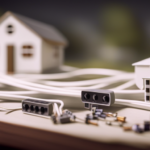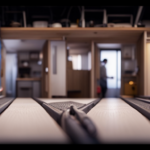Beginners Guides
Do You Still Need To Hire An Electrician When Building A Tiny House
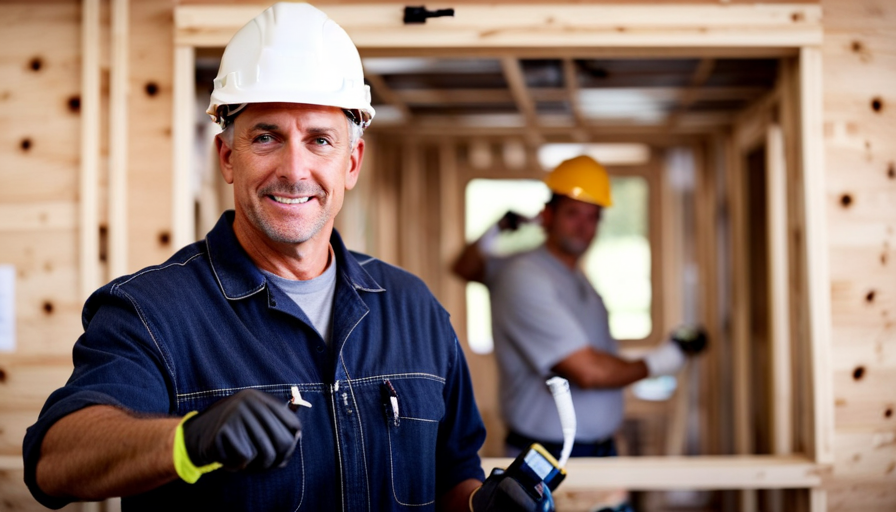
Creating a tiny home is akin to setting off on a significant journey, where each choice and detail has importance. The arrangement and style, along with the materials selected, all mirror your individual taste and aspirations. As for the electrical setup, it’s easy to fall into the trap of believing it’s something you can manage on your own. It is just a tiny house, after all, isn’t it?
But before you pick up that wire stripper, consider the importance of safety and compliance with electrical codes. Imagine the peace of mind that comes from knowing your electrical system is professionally installed and meets all necessary safety standards. Hiring an electrician for your tiny house build ensures that your electrical system is designed correctly, components are installed and wired properly, and any issues are addressed promptly. Plus, obtaining permits and passing inspections becomes a breeze when you have an expert guiding you through the process.
So, while building a tiny house is a thrilling adventure, don’t overlook the importance of hiring an electrician to ensure a safe and sound electrical system.
Key Takeaways
- Hiring an electrician is crucial for ensuring safety and compliance with electrical codes when building a tiny house.
- Electricians have the knowledge and expertise to design and install a proper electrical system based on the size and power needs of the tiny house.
- Troubleshooting electrical issues is best left to professionals, as they understand circuits and common problems.
- Hiring an electrician provides peace of mind, guarantees safety, and saves time and effort in dealing with electrical issues.
Understanding Electrical Codes and Safety Standards
Although building a tiny house may seem like a DIY project, it’s imperative to hire an electrician to ensure compliance with electrical codes and safety standards.
Electrical code requirements are in place to protect homeowners from potential hazards, such as electrical fires or shocks. An electrician is well-versed in these codes and can ensure that your tiny house meets all the necessary regulations.
They’ll also take safety precautions, such as installing ground fault circuit interrupters (GFCIs) and ensuring proper grounding. These measures are essential to safeguarding your home and its occupants.
Moreover, an electrician will ensure that the electrical system design is appropriate for your tiny house, taking into account factors such as the size of the space and your power needs.
By hiring an electrician, you can guarantee that your tiny house will have a safe and efficient electrical system.
Ensuring Proper Electrical System Design
Ensuring proper electrical system design in a tiny house is crucial for safety and functionality. When designing the power supply for a tiny house, several factors need to be considered. These include the electrical load requirements, the available power sources, and the overall layout of the house. To help visualize these considerations, I have created a table below:
| Factor | Consideration |
|---|---|
| Electrical Load | Calculate the total power needed for all appliances and lighting fixtures. |
| Power Sources | Determine if the house will be connected to the grid, rely on renewable energy, or a combination of both. |
| Layout of the House | Plan the placement of outlets, switches, and circuit breakers to ensure convenient access and safety. |
By carefully designing the power supply, the electrical system in a tiny house can be efficient and reliable. This lays the foundation for the next step, which is installing and wiring the electrical components seamlessly.
Installing and Wiring Electrical Components
To successfully install and wire electrical components in your tiny house, it’s essential to carefully follow a detailed plan and ensure that all connections are secure and up to code.
Start by selecting the right power source for your needs, whether it’s connecting to the grid or utilizing renewable energy options like solar panels. Additionally, consider energy-efficient lighting options to minimize power consumption. LED lights, for example, are a great choice as they use less energy and have a longer lifespan.
When installing and wiring these components, pay close attention to safety measures, such as using proper insulation and grounding techniques. This will help prevent any electrical hazards in the future.
With a well-designed electrical system and proper installation, you can enjoy a reliable and safe power supply in your tiny house.
Transitioning into troubleshooting and repairing electrical issues, it’s important to know how to address any potential problems that may arise.
Troubleshooting and Repairing Electrical Issues
When troubleshooting and repairing electrical issues in your tiny house, it’s important to have a basic understanding of electrical circuits and common problems that may occur. Did you know that faulty wiring is one of the leading causes of electrical fires in homes? To help you with electrical maintenance in your tiny house, here are some common electrical issues and their possible solutions:
| Electrical Issue | Possible Solution |
|---|---|
| Flickering lights | Check for loose connections or replace the bulb |
| Circuit breaker tripping | Identify the overloaded circuit and redistribute the load |
| Outlets not working | Test the outlet with a voltage tester or reset the GFCI outlet |
By learning how to troubleshoot and repair these issues, you can save time and money. However, it’s important to know your limits. If the issue seems complex or you are unsure about handling it, hiring professionals, such as licensed electricians, is always recommended. They have the expertise to diagnose and fix electrical problems safely and effectively.
Now that you have a better understanding of troubleshooting and repairing electrical issues, let’s move on to obtaining permits and inspections to ensure your tiny house is up to code.
Obtaining Permits and Inspections
Securing the necessary permits and inspections for your tiny house will give you peace of mind, knowing that your dream home meets all the required safety standards. It is important to follow the proper procedures to ensure a smooth and efficient process.
Streamlining the permit application and inspection process can help save time and avoid unnecessary delays. While it may be tempting to take a DIY approach to obtaining permits and inspections, it’s highly recommended to hire an electrician who’s familiar with the local regulations and requirements. They have the expertise to navigate the complex paperwork and ensure that your electrical system is up to code.
By doing so, you can avoid costly mistakes and potential safety hazards. Ensuring compliance with building regulations is crucial to the success of your tiny house project.
Ensuring Compliance with Building Regulations
Ensuring full compliance with construction codes is crucial for the success of your tiny house project. Building regulations compliance is especially important when it comes to the electrical system design. Hiring an electrician is essential to guarantee that your tiny house adheres to all safety standards and regulations.
An electrician will have the knowledge and expertise to properly install the electrical components, ensuring they’re up to code and functioning correctly. They’ll also be able to assess the specific needs of your tiny house and design an electrical system that meets those requirements. By hiring an electrician, you can have peace of mind knowing that your tiny house is wired correctly and that all safety measures have been taken. This provides a guarantee of safety for you and your future occupants, making it a worthwhile investment.
Transitioning into the subsequent section about ‘peace of mind and guarantee of safety’, it’s important to consider how hiring an electrician can also provide additional benefits.
Peace of Mind and Guarantee of Safety
Rest easy and have confidence in the safety of your tiny house by hiring an electrician to handle your electrical system needs. When it comes to ensuring the safety of your home, there is no room for compromise.
Electricians are highly trained professionals who possess the necessary qualifications to handle electrical installations and repairs. They have a deep understanding of building codes and regulations, ensuring that your tiny house meets all safety standards. By hiring an electrician, you can have peace of mind knowing that your electrical system is in the hands of a skilled and knowledgeable expert.
Additionally, while there may be a cost associated with hiring an electrician, it’s a worthwhile investment that can potentially save you from expensive repairs or accidents in the long run.
Frequently Asked Questions
How much does it cost to hire an electrician for a tiny house?
Hiring a professional electrician for your tiny house is a wise investment. Did you know that according to the National Fire Protection Association, electrical fires account for around 19% of all home fires?
When it comes to the cost, it varies depending on factors like the size of your house and the complexity of the electrical system. However, the safety and peace of mind you gain from having a qualified electrician handle the job is priceless.
What qualifications and certifications should I look for in an electrician for a tiny house?
When looking for an electrician for a tiny house, it’s important to consider their qualifications and certifications.
Look for someone who is licensed and has experience working with residential electrical systems. They should be knowledgeable about the specific requirements and safety regulations for tiny houses.
Additionally, certifications such as those from the National Electrical Contractors Association (NECA) or the International Brotherhood of Electrical Workers (IBEW) can indicate their expertise in the field.
Hiring a qualified and certified electrician ensures the electrical system in your tiny house is safe and reliable.
Are there any specific electrical requirements for a tiny house on wheels compared to a stationary tiny house?
There are indeed specific electrical requirements and regulations for tiny houses on wheels compared to stationary tiny houses. These requirements include using RV-approved electrical systems, which typically involve a 30-amp or 50-amp power supply, GFCI outlets, and appropriate wiring for the size and power needs of the house.
It’s crucial to consult with a qualified electrician who’s knowledgeable about these specific requirements to ensure a safe and compliant electrical system for your tiny house on wheels.
Can I DIY the electrical work in my tiny house if I have some basic electrical knowledge?
Taking on DIY electrical work in a tiny house may seem tempting, but it’s important to consider the risks involved. While having basic electrical knowledge is helpful, it has its limitations. One wrong move could result in electrical hazards or even a potential fire.
It’s crucial to understand the complexities of electrical systems and adhere to safety codes. Hiring an electrician ensures a professional, reliable installation, providing peace of mind and safeguarding against potential dangers.
What are the potential consequences of not hiring an electrician and attempting to do the electrical work myself in a tiny house?
The consequences of attempting DIY electrical work in a tiny house can be significant. Safety risks are a major concern, as improper wiring can lead to electrical fires or electrocution. Without the expertise of an electrician, you may not be aware of specific code requirements and regulations, which could result in failed inspections or potential fines. Additionally, DIY electrical work could void any insurance coverage, leaving you financially responsible for any damages or accidents. It’s crucial to prioritize safety and consult a professional electrician for this task.
Conclusion
In conclusion, while building a tiny house may seem like a DIY dream, the importance of hiring an electrician can’t be overstated. Juxtaposing the thrill of independence with the potential dangers of electrical work, it becomes clear that a professional’s expertise is essential for ensuring safety and compliance.
From understanding codes and designing the system to troubleshooting and obtaining permits, an electrician’s knowledge and precision are unmatched. Don’t compromise on the safety of your tiny home – hire an electrician to guarantee peace of mind.
Hi, I’m Emma. I’m the Editor in Chief of Tiny House 43, a blog all about tiny houses. While tree houses are often associated with childhood, they can be the perfect adult retreat. They offer a cozy space to relax and unwind, surrounded by nature. And since they’re typically built on stilts or raised platforms, they offer stunning views that traditional homes simply can’t match. If you’re looking for a unique and romantic getaway, a tree house tiny house might just be the perfect option.
Beginners Guides
Episode Where Coyote Buys Tiny House On Grace And Frankie
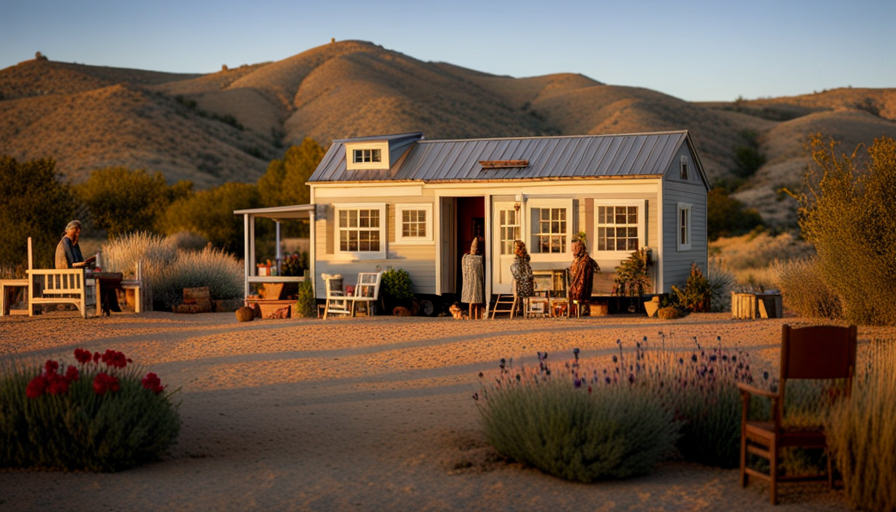
Get ready to be completely blown away by the most hilarious and heartwarming episode of Grace and Frankie yet!
In the episode where Coyote buys a tiny house, prepare for a rollercoaster of emotions as we delve into the world of minimalist living.
This episode takes us on a journey through the challenges and triumphs of living in a tiny home, showcasing the incredible transformation that takes place in Coyote’s life.
From navigating the ups and downs of minimalistic living to the lessons learned along the way, this episode is packed with insightful moments that will leave you questioning your own relationship with material possessions.
Brace yourself for the impact of Coyote’s tiny house on the show’s dynamic, as this decision shakes things up in unexpected ways.
So grab your popcorn and get ready to laugh, cry, and be inspired by the incredible story of Coyote’s tiny house adventure!
Key Takeaways
- Coyote’s decision to buy a tiny house brings a rollercoaster of emotions and insights into minimalist living.
- The challenges and triumphs of living in a tiny home transform Coyote’s life and question viewers’ relationship with material possessions.
- Minimalist living in a tiny house has benefits for mental health and offers practical tips for transitioning to a simpler lifestyle.
- Coyote’s motivation to embrace a minimalist lifestyle includes downsizing, sustainability, and detachment from material possessions, with challenges including letting go of belongings and adapting to a smaller space.
The Appeal of Minimalist Living
Coyote’s decision to buy a tiny house on Grace and Frankie perfectly captures the allure of minimalist living, where every nook and cranny is utilized in a cozy and efficient way.
Minimalism, with its focus on simplicity and intentional living, has been shown to have positive effects on mental health. By decluttering and reducing material possessions, people can experience decreased stress and increased clarity of mind.
Transitioning to a minimalist lifestyle can seem daunting, but there are practical tips to make the process easier. Start by decluttering one room at a time, keeping only the items that bring joy or serve a purpose. Embrace multifunctional furniture and storage solutions to maximize space. Incorporate daily habits like meditation and gratitude to foster a minimalist mindset.
However, exploring the challenges of tiny house living brings to light the reality that minimalism is not without its obstacles.
Exploring the Challenges of Tiny House Living
Imagine the difficulties you’ll face when you squeeze yourself into a pint-sized abode, where every inch is a battleground for survival. Tiny house living certainly has its benefits, such as reduced expenses, lower environmental impact, and the opportunity to simplify your life.
However, it also comes with its fair share of drawbacks. Lack of space is the most obvious challenge, as it requires careful organization and limited possessions. Privacy can be compromised, with no room for personal retreats. Additionally, living in a tiny house can be physically demanding, with limited amenities and the need for creative solutions to everyday tasks.
Despite these challenges, many people find the benefits of minimalist living outweigh the drawbacks. Now, let’s explore Coyote’s decision to embrace a minimalist lifestyle without missing a beat.
Coyote’s Decision to Embrace a Minimalist Lifestyle
Embracing a minimalist lifestyle offers numerous benefits for those seeking to simplify their lives and reduce clutter. In the episode where Coyote buys a tiny house on ‘Grace and Frankie,’ his motivation to embrace this lifestyle becomes evident. Coyote’s decision is driven by a desire to downsize, live more sustainably, and detach himself from material possessions.
Adjusting to this change, however, is not without its challenges. Transitioning from a larger home to a tiny house requires letting go of unnecessary belongings and adapting to a more compact living space. Despite these difficulties, Coyote finds fulfillment in the simplicity and freedom that comes with a minimalist lifestyle.
This episode showcases his journey as he navigates the ups and downs of embracing minimalism. From hilarious antics to heartfelt moments, the episode captures the essence of Coyote’s transformation and the joy that can be found in living with less.
Hilarious Antics and Heartfelt Moments in the Episode
Filled with laughter and tears, the episode reveals the hilarious antics and heartfelt moments that arise as Coyote embraces his new minimalist lifestyle.
Coyote’s comedic mishaps provide plenty of comedic relief throughout the episode. From struggling to fit his belongings into the tiny house to accidentally knocking over furniture, Coyote’s journey into minimalism is anything but smooth.
However, amidst the chaos, there are also heartwarming connections that emerge. Coyote forms a deeper bond with Grace and Frankie as they help him navigate the challenges of downsizing. Additionally, he discovers a newfound appreciation for the simplicity of life, finding joy in the little things.
As the episode comes to a close, Coyote reflects on the ups and downs of living in a tiny home, preparing for the next chapter of his minimalist adventure.
Navigating the Ups and Downs of Living in a Tiny Home
Despite the cramped quarters and unexpected challenges, Coyote discovers that living in a tiny home is like riding a roller coaster, with its ups and downs that bring a sense of exhilaration and adventure. Small space organization becomes crucial in a tiny home, forcing Coyote to carefully consider every item and find creative storage solutions. Maintaining a minimalist lifestyle becomes a necessity as there is simply no room for excess. It’s a constant juggling act, making sure everything has a designated place and that clutter is kept at bay. The table below illustrates some of the clever ways Coyote organizes his small space:
| Item | Storage Solution | Benefits |
|---|---|---|
| Clothes | Foldable storage cubes | Maximizes vertical space |
| Kitchen supplies | Magnetic wall racks | Easy access and saves counter space |
| Books | Wall-mounted shelves | Adds decor and saves floor space |
| Bed | Under-bed storage bins | Utilizes otherwise wasted space |
| Bathroom items | Hanging shower caddy | Keeps items within reach and visible |
Coyote’s experience in the tiny home teaches him valuable lessons about living with less and finding joy in simplicity.
Lessons Learned from Coyote’s Experience
After watching Coyote navigate the ups and downs of living in a tiny home, I’ve learned some valuable lessons. First and foremost, downsizing can be a liberating experience. By letting go of unnecessary belongings and embracing a simpler lifestyle, Coyote was able to focus on what truly mattered to him. This newfound sense of freedom allowed him to prioritize experiences over material possessions, leading to a more fulfilling life.
Additionally, Coyote’s tiny home taught me the benefits of living with less. With limited space, he had to be intentional about what he brought into his home, which ultimately reduced clutter and promoted a sense of organization. Moreover, the reduced cost of maintaining a smaller space allowed Coyote to save money and live more sustainably.
Overall, Coyote’s experience with his tiny house serves as a reminder of the positive impact downsizing can have on our lives. Moving forward, let’s explore the impact of Coyote’s tiny house on the show’s dynamic.
The Impact of Coyote’s Tiny House on the Show’s Dynamic
Imagine how Coyote’s tiny house has completely transformed the dynamic of the show. It offers a fresh and exciting perspective on the characters’ lives. The impact of Coyote’s tiny house on the relationships of the characters is undeniable.
It has provided a unique space for intimate conversations and moments of reflection. The close proximity of the tiny house to the main characters’ homes has allowed for spontaneous interactions, deepening their connections and fostering a stronger sense of community.
Furthermore, Coyote’s decision to embrace tiny house living has sparked discussions about the practicality of such a lifestyle. Viewers are given insight into the challenges and benefits of living in a small space, prompting them to consider their own living arrangements.
Overall, Coyote’s tiny house has not only added an interesting dynamic to the show, but it has also encouraged viewers to reevaluate their own perspectives on relationships and practicality in their own lives.
Frequently Asked Questions
How many bedrooms does Coyote’s tiny house have?
Coyote’s tiny house has one bedroom. Building a tiny house can be affordable compared to traditional homes, with costs ranging from $20,000 to $150,000 depending on size and materials. However, legal restrictions on living in a tiny house vary by location. Some areas allow full-time living, while others only permit it as an accessory dwelling unit or temporary accommodation. It’s important to research local regulations before considering a tiny house as a permanent residence.
What is the cost of building a tiny house like Coyote’s?
The cost of building a tiny house like Coyote’s can vary depending on factors such as location, size, and materials used. On average, the cost of materials for a tiny house ranges from $20,000 to $50,000.
The build time for a tiny house can take anywhere from a few weeks to several months, depending on the complexity of the design and the availability of labor.
How did Coyote afford to buy a tiny house?
Coyote was able to afford a tiny house through a combination of his various sources of income. As a successful artist, he earns a steady income from selling his artwork. Additionally, he has a part-time job as a yoga instructor, which provides him with a supplemental income.
Living in a tiny house also comes with financial implications. It allows Coyote to save money on utilities, maintenance, and overall living expenses, making it a more affordable housing option.
What is the square footage of Coyote’s tiny house?
The square footage of Coyote’s tiny house isn’t explicitly mentioned in the episode where he buys it on Grace and Frankie. However, it’s important to note that the cost of building a tiny house can vary depending on various factors such as location, materials used, and customization.
Additionally, legal restrictions on living in a tiny house can also vary from place to place, with some areas having specific regulations regarding minimum square footage requirements for residential dwellings.
Are there any legal restrictions on living in a tiny house like Coyote’s?
Are there any legal restrictions on living in a tiny house like Coyote’s?
Living in a tiny house comes with its own set of legal requirements. While regulations vary by location, some common requirements include obtaining building permits, adhering to zoning laws, and meeting safety codes for electrical and plumbing systems.
However, the benefits of living in a tiny house, such as lower costs and a smaller environmental footprint, often outweigh the potential challenges of navigating these legal requirements.
Conclusion
In conclusion, Coyote’s decision to embrace a minimalist lifestyle by purchasing a tiny house on ‘Grace and Frankie’ is both entertaining and enlightening. The challenges and triumphs he faces in navigating the ups and downs of tiny house living provide valuable lessons and moments of reflection.
The impact of his tiny house on the show’s dynamic adds an exciting and fresh element to the storyline. Overall, this episode serves as a reminder of the appeal of minimalism and the power of embracing a simpler way of life. It’s a must-watch for anyone seeking inspiration and a good laugh.
Hi, I’m Emma. I’m the Editor in Chief of Tiny House 43, a blog all about tiny houses. While tree houses are often associated with childhood, they can be the perfect adult retreat. They offer a cozy space to relax and unwind, surrounded by nature. And since they’re typically built on stilts or raised platforms, they offer stunning views that traditional homes simply can’t match. If you’re looking for a unique and romantic getaway, a tree house tiny house might just be the perfect option.
Beginners Guides
Diy Tiny House How Long
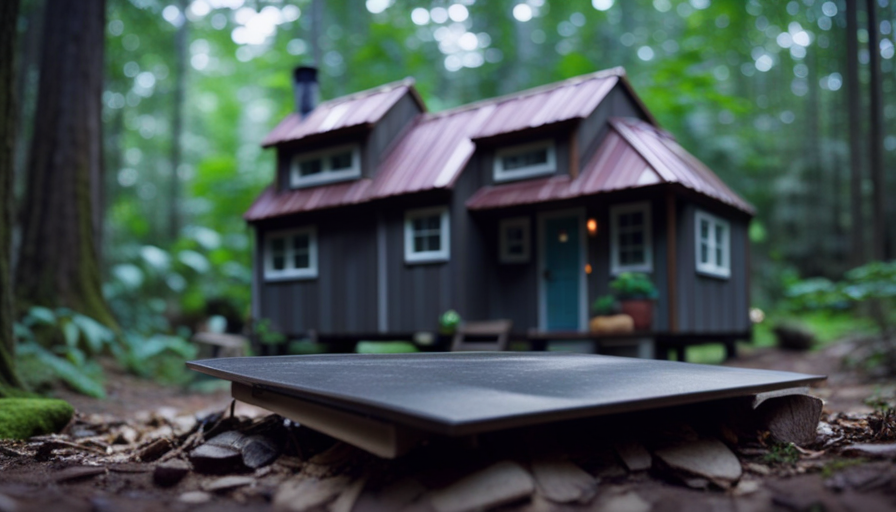
Building your own tiny home may seem like a daunting task, but I can assure you it is a truly rewarding adventure! From the initial research and planning stages to the final touches and the day you finally move in, every step of this journey is filled with excitement and satisfaction.
Now, I won’t lie to you, building a tiny house is no small feat. It requires careful research, meticulous planning, and a whole lot of elbow grease. But fear not, because I’m here to guide you through the journey, step by step.
In this article, we’ll explore the timeline of building a DIY tiny house. From the moment you acquire the necessary materials and permits, to the foundation and framing, electrical and plumbing installations, and finally, the interior and exterior finishes – we’ll cover it all.
So grab your tool belt and get ready to dive into the world of DIY tiny house building. By the end of this article, you’ll have a clear understanding of how long it takes to turn your dreams into reality.
Let’s get started!
Key Takeaways
- Building a DIY tiny house requires research, planning, and hard work.
- The timeline of building a DIY tiny house includes researching and planning, acquiring materials and permits, foundation and framing, electrical and plumbing installations, and interior and exterior finishes.
- The benefits of building a tiny house include affordability, sustainability, and a minimalist lifestyle.
- Key steps in the DIY tiny house building process include creating a blueprint, calculating costs, creating a timeline, acquiring materials from local hardware stores, online suppliers, and salvage yards, obtaining permits and licenses by complying with regulations and filling out applications, and utilizing salvage yards for cost savings and uniqueness.
Research and Planning Stage
You should start by researching and planning your DIY tiny house so you can ensure that you have a solid foundation before you begin construction.
Researching the benefits of building a tiny house allows you to understand the advantages, such as affordability, sustainability, and the freedom to live a minimalist lifestyle. By gathering information on different designs, materials, and construction methods, you can make informed decisions that align with your needs and preferences.
The planning process involves creating a detailed blueprint, calculating the costs, and creating a timeline for the project. This stage is crucial as it helps you anticipate challenges, identify potential solutions, and avoid costly mistakes.
Once you have completed the research and planning stage, you can move on to acquiring materials and permits, ensuring a smooth transition into the next phase of your DIY tiny house journey.
Acquiring Materials and Permits
When it comes to acquiring materials for my DIY tiny house project, I plan to source them from various places such as local hardware stores, online suppliers, and even salvage yards for reclaimed materials. This will help me to find the best quality materials at the most affordable prices.
Additionally, I understand the importance of obtaining the necessary permits and licenses for my tiny house, as it’ll ensure that my project is legal and up to code. I’ll research the specific requirements for my area and work with the appropriate authorities to ensure a smooth and compliant construction process.
Source Building Materials
To save time and money, I started by sourcing building materials from local salvage yards and repurposing them for my DIY tiny house. There are several sourcing options available, including salvage yards, architectural salvage stores, and online marketplaces.
When considering the cost, it was important to compare prices and factor in transportation costs. I found that salvage yards offered a wide range of materials at lower prices, especially if I was willing to put in some extra effort to clean and refurbish them. Additionally, repurposing materials not only saved money but also added a unique touch to my tiny house.
By using reclaimed wood for the flooring and salvaged windows for natural lighting, I was able to create a sustainable and eco-friendly living space. Now that I had sourced my materials, it was time to obtain necessary permits and licenses, ensuring that my tiny house complied with local regulations.
Obtain Necessary Permits and Licenses
After sourcing building materials from local salvage yards and repurposing them, it was time to ensure that necessary permits and licenses were obtained for my eco-friendly living space. Here are the steps I took to obtain the permits and meet the licensing requirements:
-
Research: I began by researching the specific permits and licenses needed for building a tiny house in my area. This included zoning regulations, building codes, and any special requirements for eco-friendly structures.
-
Application: Once I had gathered all the necessary information, I filled out the permit application and submitted it to the local building department. This included providing detailed plans and specifications for the tiny house.
-
Review and Approval: The building department reviewed my application, plans, and specifications to ensure compliance with all regulations. They may have requested revisions or additional information before granting approval.
-
Fees and Inspections: After receiving approval, I paid the required fees and scheduled inspections at various stages of the construction process to ensure compliance with building codes.
With the necessary permits and licenses in hand, I could now move on to the next step of my tiny house project: foundation and framing.
Foundation and Framing
Once you’ve laid a solid foundation for your tiny house, the framing becomes the backbone, giving structure and strength to your dream home like a sturdy spine supports the human body.
Before starting the framing process, it’s crucial to ensure that the foundation is properly prepared. This includes leveling the ground, adding gravel and compacting it to create a stable base.
Once the foundation is ready, you can begin the framing process by constructing the walls, roof, and floor systems. Framing techniques such as platform framing or post-and-beam construction can be used, depending on your design preferences and local building codes.
Precision and accuracy are essential during this stage to ensure that the walls are plumb, the roof is properly supported, and the overall structure is sturdy.
With the framing complete, you can then move on to the next exciting step of electrical and plumbing installations, seamlessly connecting your tiny house to essential utilities.
Electrical and Plumbing Installations
When connecting your tiny home to essential utilities, you’ll need to carefully consider the electrical and plumbing installations, ensuring they are done correctly and safely.
For the electrical wiring, it’s crucial to plan the layout and determine the right gauge of wires to handle the load. Install outlets strategically throughout the house, considering the locations of appliances and devices. Additionally, don’t forget to include a breaker box to control the flow of electricity and ensure safety.
Regarding the plumbing system, start by installing a water supply line and connect it to a reliable source. Consider the size of the pipes and the water pressure needed. Install a water heater and connect it to the plumbing system.
For waste disposal, install a toilet, sink, and shower, connecting them to the sewage system or a septic tank.
Next, we will move on to the interior and exterior finishes, giving your tiny house a beautiful and functional appearance.
Interior and Exterior Finishes
To achieve a stunning and inviting look for your tiny home, you’ll eagerly explore the world of interior and exterior finishes, transforming your humble abode into a breathtaking oasis.
When it comes to tiny house paint colors, it’s important to choose hues that create a sense of openness and serenity. Light and neutral shades such as whites, creams, and pastels can make your space feel more spacious and airy. Additionally, consider incorporating pops of color through accent walls or colorful furniture to add personality and visual interest.
As for tiny house landscaping ideas, think about creating a cozy outdoor space that complements the overall design of your tiny home. Utilize vertical gardens, potted plants, and strategic placement of outdoor furniture to maximize the limited space.
With the right finishes, your tiny home will truly shine.
Moving forward to the next section on cabinetry and fixture installation, we’ll explore how to optimize storage and functionality within your tiny home.
Cabinetry and Fixture Installation
Get ready to optimize your storage and functionality by diving into the world of cabinetry and fixture installation in your tiny home. Cabinet design plays a crucial role in maximizing space, so it’s important to carefully plan the layout and dimensions. Consider utilizing custom-built cabinets to fit perfectly into the available space. When selecting fixtures, choose ones that are both functional and aesthetically pleasing. Look for compact options that can be easily installed in your tiny home without taking up too much space. To evoke emotion in the audience, here’s a table showcasing popular cabinet and fixture options:
| Cabinet Design | Fixture Selection |
|---|---|
| Open Shelving | Wall-mounted Sink |
| Pull-out Drawers | Space-saving Toilet |
| Corner Cabinets | Compact Shower |
| Overhead Cabinets | Foldable Faucet |
| Hidden Storage | Wall-mounted Mirror |
With these cabinetry and fixture choices, your tiny home will not only be functional but also visually appealing. Now, let’s move on to the final touches and move-in.
Final Touches and Move-In
Now that the cabinetry and fixtures are installed, it’s time to focus on the final touches and move-in process for my DIY tiny house.
The first step is to install lighting and hardware throughout the house, ensuring that every corner is well-lit and functional.
Once that’s done, I can begin to furnish and decorate the space, carefully selecting pieces that maximize both comfort and functionality in this small living area.
Install Lighting and Hardware
Once you’ve chosen the perfect lighting fixtures and hardware, it’s time to install them in your DIY tiny house.
Lighting fixtures play a crucial role in creating the desired ambiance and functionality of your living space. Begin by carefully following the manufacturer’s instructions for installation, ensuring that all electrical connections are secure and safe.
Whether you opt for recessed lights, pendant lights, or wall sconces, position them strategically to illuminate key areas such as the kitchen, bathroom, and living room. Additionally, consider installing dimmer switches to control the brightness and create different moods throughout the day.
As for hardware installation, focus on functionality and aesthetics. Install door handles, drawer pulls, and cabinet knobs that match the overall style of your tiny house. These finishing touches will add a touch of personality and enhance the overall look and feel of your cozy abode.
With the lighting fixtures and hardware in place, it’s time to move on to the next exciting step – furnish and decorate the tiny house.
Furnish and Decorate the Tiny House
Transform your small space into a cozy and stylish haven by carefully selecting furnishings and adding personalized decor.
To make the most of your tiny house, consider these furniture arrangement tips:
-
Choose multi-functional pieces: Opt for furniture that serves more than one purpose, such as a sofa bed or a coffee table with hidden storage.
-
Maximize vertical space: Utilize tall bookshelves and wall-mounted storage units to free up floor space and keep your belongings organized.
-
Create an illusion of space with color: Light and neutral color schemes can make your tiny house feel more open and spacious. Consider using pastel shades or white as the base color and adding pops of color with accent pieces or artwork.
By carefully arranging your furniture and selecting the right color scheme, you can create a functional and visually appealing tiny house that feels like a home.
Frequently Asked Questions
Can I build a tiny house without any prior construction experience?
Sure, building a tiny house without any prior construction experience is definitely possible.
In fact, a surprising statistic shows that nearly 70% of tiny house builders have little to no construction background.
While it may seem daunting at first, there are plenty of resources available, such as online tutorials and workshops, that can guide you through the process step-by-step.
With dedication, patience, and a willingness to learn, anyone can successfully tackle building their own tiny house.
How much does it typically cost to build a DIY tiny house?
In terms of cost estimation and budget planning, building a DIY tiny house can vary greatly depending on factors such as size, materials, and location.
On average, though, the cost to build a DIY tiny house ranges from $10,000 to $30,000. It’s important to carefully consider expenses for materials, permits, utilities, and any necessary tools or equipment. Additionally, researching and comparing prices can help ensure you stay within your budget during the construction process.
Are there any specific building codes or regulations I need to follow when constructing a tiny house?
When constructing a tiny house, it’s crucial to adhere to building codes and regulations. These codes and regulations vary depending on your location, so it’s essential to research and understand the specific requirements in your area.
Building codes typically cover aspects such as minimum square footage, ceiling height, electrical and plumbing systems, safety measures, and zoning restrictions. By following these guidelines, you can ensure the legality and safety of your tiny house construction project.
What are the most common challenges people face when building a DIY tiny house?
When building a DIY tiny house, common challenges include managing limited space, optimizing storage solutions, and ensuring proper insulation and ventilation.
To maximize space, I recommend using multi-functional furniture, such as sofas with built-in storage or foldable tables. Additionally, utilizing vertical space through lofted sleeping areas or high shelves can be helpful.
It’s also crucial to carefully plan the layout and prioritize essential features to make the most of the available square footage.
How long does it take on average to complete the construction of a DIY tiny house?
On average, it takes about 1,000 hours to complete the construction of a DIY tiny house. This statistic is fascinating because it highlights the level of dedication and commitment required for such a project.
The construction process involves various stages, including planning, designing, obtaining permits, framing, electrical work, plumbing, insulation, and finishing touches. Each step requires careful attention to detail, which contributes to the overall time it takes to finish the project.
Conclusion
In conclusion, building a DIY tiny house is a rewarding and fulfilling project that requires careful planning, hard work, and attention to detail.
From the research and planning stage to the final touches and move-in, every step of the process is crucial in creating a comfortable and functional living space.
By acquiring the necessary materials and permits, constructing a solid foundation and framing, installing electrical and plumbing systems, and adding interior and exterior finishes, one can create a personalized and efficient home.
So why wait? Embark on this journey and ask yourself, isn’t it time to create the perfect tiny house for yourself?
Hi, I’m Emma. I’m the Editor in Chief of Tiny House 43, a blog all about tiny houses. While tree houses are often associated with childhood, they can be the perfect adult retreat. They offer a cozy space to relax and unwind, surrounded by nature. And since they’re typically built on stilts or raised platforms, they offer stunning views that traditional homes simply can’t match. If you’re looking for a unique and romantic getaway, a tree house tiny house might just be the perfect option.
Beginners Guides
What Are These Little Tiny Flies In My House

Have you ever walked into your house and been greeted by a swarm of small flies? While they may seem harmless at first, they can quickly become a nuisance.
Picture this: you enter your home, and as you make your way through the rooms, you notice these small flies buzzing around your face, landing on your food, and multiplying seemingly overnight. It’s enough to make anyone feel frustrated and disgusted.
But fear not, for I am here to shed some light on the mystery of these little pests. In this article, we will delve into the world of small flies and explore their types, breeding habits, and how to locate their breeding sources. We will also discuss preventive measures, homemade traps, and remedies you can try.
So, let’s dive in and discover what these little tiny flies in your house are all about.
Key Takeaways
- Small flies in the house are usually found near sources of food or moisture.
- Identifying and eliminating breeding sources is crucial for controlling small fly infestations.
- Regularly checking for standing water, reducing humidity, and cleaning up spills and food debris can help prevent fly infestations.
- Using natural fly repellents, regular cleaning routines, and properly sealing entry points can reduce the likelihood of attracting flies.
Identify the Types of Small Flies
These little tiny flies in my house can be identified by their distinct characteristics. Common signs of a small fly infestation include the presence of small flies buzzing around the house, especially near sources of food or moisture.
These flies are usually small, measuring only a few millimeters in length, and are commonly found near garbage cans, sinks, or drains. They have a short lifespan of only a few weeks, but their rapid reproduction can quickly lead to a large infestation if not addressed promptly.
Besides being a nuisance, small flies in the house can pose potential risks and health hazards. They’re known to carry and spread bacteria, such as E. coli and Salmonella, which can contaminate food and surfaces. This can lead to foodborne illnesses and other infections. Additionally, some people may experience allergic reactions to small fly allergens, resulting in symptoms like watery eyes, sneezing, and respiratory issues.
To understand their breeding habits, it’s essential to investigate the areas where these flies are commonly found, such as drains, garbage cans, or moist areas. By identifying their breeding grounds, it becomes easier to eliminate their presence and prevent future infestations.
Understand their Breeding Habits
Understanding their breeding habits can help you tackle the persistent presence of these minuscule pests. Small flies, such as fruit flies and drain flies, have distinct life cycles that contribute to their population growth. By understanding these cycles, you can implement effective strategies to control their population.
-
Fruit flies: These tiny insects lay their eggs on fermenting fruits and vegetables. The eggs hatch into larvae within 24-48 hours, and the larvae feed on the decaying matter for about a week. After pupating for another week, adult fruit flies emerge and the cycle continues.
-
Drain flies: These flies breed in moist areas, such as drains, sewage pipes, or standing water. Their eggs are laid in gelatinous masses, which adhere to surfaces. The larvae, also known as ‘wigglers,’ feed on organic matter in the breeding site. They pupate for about a week before emerging as adults.
Understanding their life cycle allows you to target their breeding sources effectively. By locating and eliminating these breeding sources, you can significantly reduce their population.
In the next section, we will explore how to locate the breeding sources and eradicate them completely.
Locate the Breeding Sources
To effectively tackle the persistent presence of these pesky insects, you need to locate where they’re breeding. Identifying the breeding sources is crucial in order to eliminate them and prevent future infestations.
One effective method is to use insecticides specifically designed to target the breeding sources of these tiny flies. These insecticides contain ingredients that disrupt the life cycle of the flies, preventing them from reproducing and eventually eliminating the population.
It’s also important to consider the impact of climate and weather on fly infestations. Flies thrive in warm and humid environments, making it essential to control the moisture levels in your house. Regularly check for any areas with standing water, such as leaky pipes or clogged drains, as these can serve as breeding grounds for flies. Additionally, ensure proper ventilation and reduce humidity levels in your home by using dehumidifiers or fans.
By effectively targeting the breeding sources and considering the impact of climate and weather, you can significantly reduce the presence of these tiny flies in your house. Taking preventive measures, which we’ll discuss in the next section, will help to ensure a fly-free environment.
Take Preventive Measures
To prevent the presence of these tiny flies in my house, I should take some preventive measures. Firstly, I need to clean up spills and food debris immediately to eliminate potential breeding sources.
Secondly, I should regularly clean and maintain drains to ensure they’re free from organic matter that could attract these flies.
Lastly, I need to avoid overwatering my houseplants, as the excess moisture can create an ideal breeding environment for these pests.
Additionally, it’s important to seal cracks and crevices and properly dispose of garbage to minimize their entry and attraction to my home.
Clean up spills and food debris
Clean up spills and food debris to keep those little tiny flies out of your house, as studies have shown that a single spilled sugary drink can attract up to 500 flies. To effectively prevent fly infestations, follow these cleaning tips:
- Wipe up spills immediately to eliminate any food sources.
- Store food in airtight containers to deprive flies of easy access.
- Regularly sweep and vacuum floors to remove any food crumbs.
- Dispose of garbage promptly and keep trash cans tightly sealed.
Additionally, you can use natural fly repellents like essential oils or vinegar solutions to deter flies from entering your home. By incorporating these preventive measures into your cleaning routine, you can significantly reduce the likelihood of attracting those pesky little flies.
It’s crucial to regularly clean and maintain drains as well, as they can become breeding grounds for flies.
Regularly clean and maintain drains
After taking care of spills and food debris, it’s important to shift our attention to another potential breeding ground for those pesky flies – the drains. Regularly cleaning and maintaining drains is crucial in preventing fly infestations in our homes.
Flies are attracted to the organic matter that accumulates in our drains, providing them with a perfect environment to lay their eggs. To combat this issue, there are a few drain cleaning tips to follow.
Firstly, pour boiling water down the drain to flush out any debris. Then, use a mixture of baking soda and vinegar to break down grease and eliminate odors. Finally, a drain brush can be used to physically remove any remaining buildup.
By incorporating these tips into our cleaning routine, we can effectively reduce the likelihood of fly infestations in our homes.
Moving forward, let’s explore how to avoid overwatering houseplants.
Avoid overwatering houseplants
Carefully monitoring the watering schedule of our beloved houseplants is crucial to ensure their health and prevent any unnecessary damage. Here are four important points to consider when it comes to watering your houseplants:
-
Importance of using well-draining soil for houseplants: Using well-draining soil allows excess water to escape, preventing waterlogging and root rot.
-
Avoid overwatering: Overwatering is a common mistake that can lead to root rot, fungus gnats, and other pests. Only water when the top inch of soil is dry.
-
Water thoroughly but infrequently: When watering, make sure to thoroughly moisten the soil, but allow it to dry out between waterings. This promotes healthy root growth.
-
Use the right watering technique: Instead of watering from the top, consider bottom watering by placing the plant in a tray of water and allowing it to soak up moisture.
By following these guidelines, you can maintain healthy houseplants and minimize the risk of attracting pests. Speaking of pests, let’s now discuss how to seal cracks and crevices to prevent their entry into our homes.
Seal cracks and crevices
To keep unwelcome critters at bay, it’s essential to seal cracks and crevices like a fortress protecting its treasures. These tiny flies may find their way into your house through small openings in walls, windows, or doors. By sealing these entry points, you can create a barrier that prevents their intrusion.
Start by inspecting your home for any visible cracks or gaps and use caulk or weatherstripping to seal them. Pay special attention to areas where pipes or wiring enter your home, as these are common entry points for pests. Additionally, ensure that your windows and doors are properly sealed with weatherproofing materials.
By eliminating these potential entryways, you can significantly reduce the chances of these pesky flies infiltrating your living space.
Now, let’s move on to the next step of properly disposing of garbage.
Properly dispose of garbage
To effectively combat the issue of tiny flies in your home, it’s crucial to address the proper disposal of garbage. These pesky insects are attracted to decaying organic matter, making your garbage an ideal breeding ground for them. To prevent their infestation, follow these steps:
-
Ensure that your garbage bins have tight-fitting lids to prevent flies from accessing the contents.
-
Regularly empty and clean your garbage bins to eliminate any potential food sources for the flies.
-
Consider using garbage bags that are specifically designed to repel flies and other pests.
-
If possible, keep your garbage bins away from entrances to your home to minimize the chances of flies finding their way inside.
By properly disposing of your garbage, you can significantly reduce the presence of these flies in your home.
In the subsequent section, we’ll explore the use of homemade traps and remedies to further tackle this issue.
Use Homemade Traps and Remedies
Ah, nothing ruins a cozy evening at home like those pesky little flies buzzing around! But fear not, because there are homemade traps and remedies that can help you show those tiny pests who’s boss. When it comes to dealing with these annoying flies, homemade fly repellents and natural fly control methods can be effective and environmentally friendly alternatives to chemical-based solutions.
To tackle the fly problem, you can create homemade fly traps using common household items. One simple trap involves mixing apple cider vinegar with a few drops of dish soap in a bowl. The vinegar attracts the flies, while the soap breaks the surface tension of the liquid, causing the flies to sink and drown. Another option is a fruit trap, where you can cut up a piece of ripe fruit and place it in a jar with a funnel placed on top. The flies will be attracted to the fruit and will have difficulty finding their way out of the jar.
Additionally, there are natural remedies that can help repel flies from your home. Essential oils like eucalyptus, peppermint, and lavender can be mixed with water and sprayed around the house to deter flies. Citronella candles can also be effective in keeping flies at bay, especially when used in outdoor areas.
By utilizing these homemade traps and remedies, you can significantly reduce the fly population in your house. However, if the infestation persists or becomes unmanageable, it may be necessary to seek professional help. Remember, it’s important to take action against these flies to ensure a comfortable and fly-free living space.
Seek Professional Help if Needed
If those bothersome pests persist and become an overwhelming swarm, don’t hesitate to call in the professionals, like a skilled exterminator who can swoop in like a superhero and rid your home of these winged intruders.
While DIY methods can be effective in controlling small flies in your house, there are some common mistakes to avoid when trying to eliminate them on your own.
One common mistake is not properly identifying the type of fly infestation you’re dealing with. Different species of flies require different treatment approaches. It’s important to accurately identify the flies to determine the most effective method of control.
Additionally, some DIY methods may only provide temporary relief, and the infestation can quickly rebound if not properly addressed.
Another mistake to avoid is not addressing the root cause of the infestation. Small flies are often attracted to moist and decaying organic matter, such as rotting fruits, vegetables, or damp areas in your home. Simply eliminating adult flies without eliminating their breeding sites will not solve the problem in the long term. It’s crucial to identify and eliminate these breeding sources to prevent future infestations.
Lastly, using ineffective or harmful insecticides can be a mistake. It’s important to choose insecticides specifically formulated for small flies and follow the instructions carefully. Avoid using excessive amounts of chemicals, as it can pose health risks to humans and pets.
While DIY methods can be useful in controlling small flies in your home, it’s important to avoid common mistakes and seek professional help if needed. Professional exterminators have the knowledge and experience to accurately identify the fly species, address the root cause of the infestation, and use effective and safe control methods. So, if those tiny flies become too much to handle, don’t hesitate to call in the experts.
Frequently Asked Questions
How do I know if the small flies in my house are harmful or dangerous?
To determine if the small flies in your house are harmful or dangerous, look for signs of infestation and potential health risks. Prevent infestation by keeping your house clean and dry. For extermination, consider using methods like traps, insecticides, or professional pest control services.
Can small flies in my house transmit diseases?
Small flies in my house can indeed carry diseases and pose a health risk. These tiny insects may transmit bacteria and viruses through contact with contaminated surfaces or by biting humans. It’s important to take measures to eliminate them.
Are small flies attracted to certain types of food or materials?
Small flies are attracted to common food sources such as fruits, vegetables, and decaying organic matter. To prevent infestation, it is crucial to maintain cleanliness, store food properly, and eliminate any potential breeding sites.
How long does it take for small flies to breed and multiply in my house?
The breeding habits and life cycle of small flies in my house vary depending on the species. Some can multiply rapidly, laying eggs every few days and completing their life cycle in as little as one week.
What are some common mistakes people make when trying to get rid of small flies in their homes?
Common mistakes people make when trying to rid their homes of small flies: believing they are harmless, neglecting proper sanitation, and relying solely on chemical sprays. Effective natural remedies include vinegar traps and regular disposal of organic waste.
Conclusion
In conclusion, these little tiny flies in my house are truly fascinating creatures. Despite their annoying presence, they serve as a reminder of the intricate web of life that surrounds us.
From the fruit flies that breed in the depths of our trash cans to the fungus gnats that thrive in our potted plants, every nook and cranny of our homes becomes a haven for these resilient insects.
So, next time you spot one buzzing around, take a moment to appreciate the irony of these minuscule beings disrupting our otherwise pristine abodes.
Hi, I’m Emma. I’m the Editor in Chief of Tiny House 43, a blog all about tiny houses. While tree houses are often associated with childhood, they can be the perfect adult retreat. They offer a cozy space to relax and unwind, surrounded by nature. And since they’re typically built on stilts or raised platforms, they offer stunning views that traditional homes simply can’t match. If you’re looking for a unique and romantic getaway, a tree house tiny house might just be the perfect option.
-
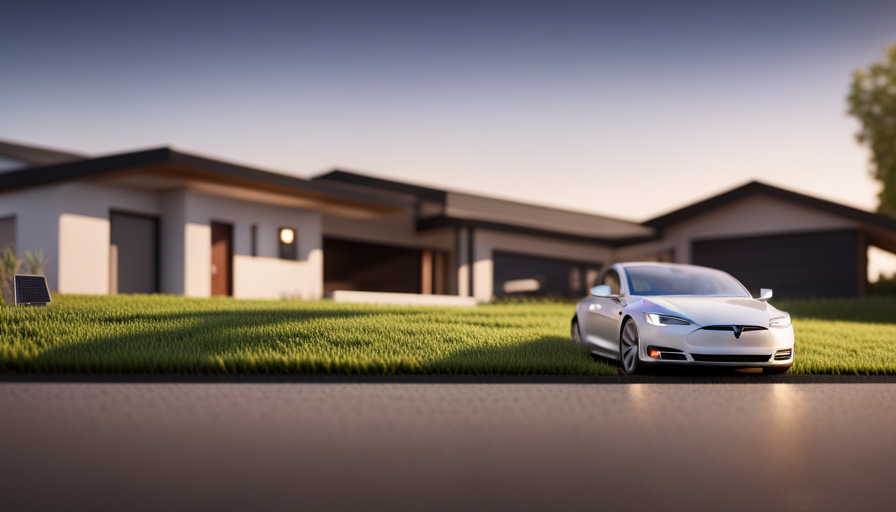
 Beginners Guides6 months ago
Beginners Guides6 months agoHow To Buy A Tesla Tiny House
-
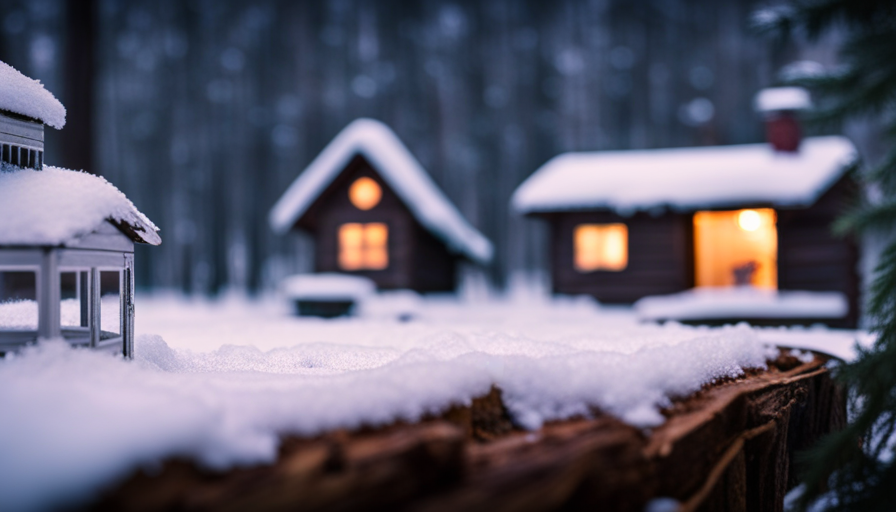
 Energy Efficiency4 months ago
Energy Efficiency4 months agoBest Tiny Homes For Cold Climates
-
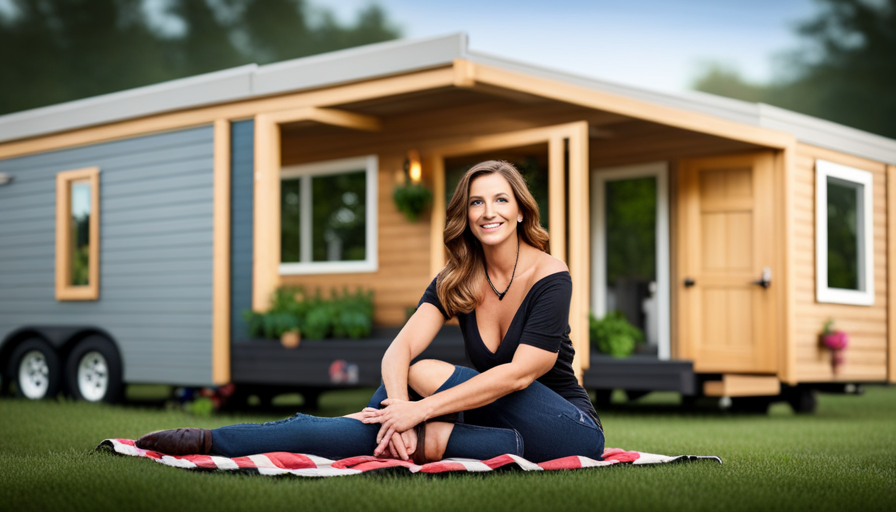
 Beginners Guides6 months ago
Beginners Guides6 months agoTiny House Nation Where Are They Now Stephanie
-
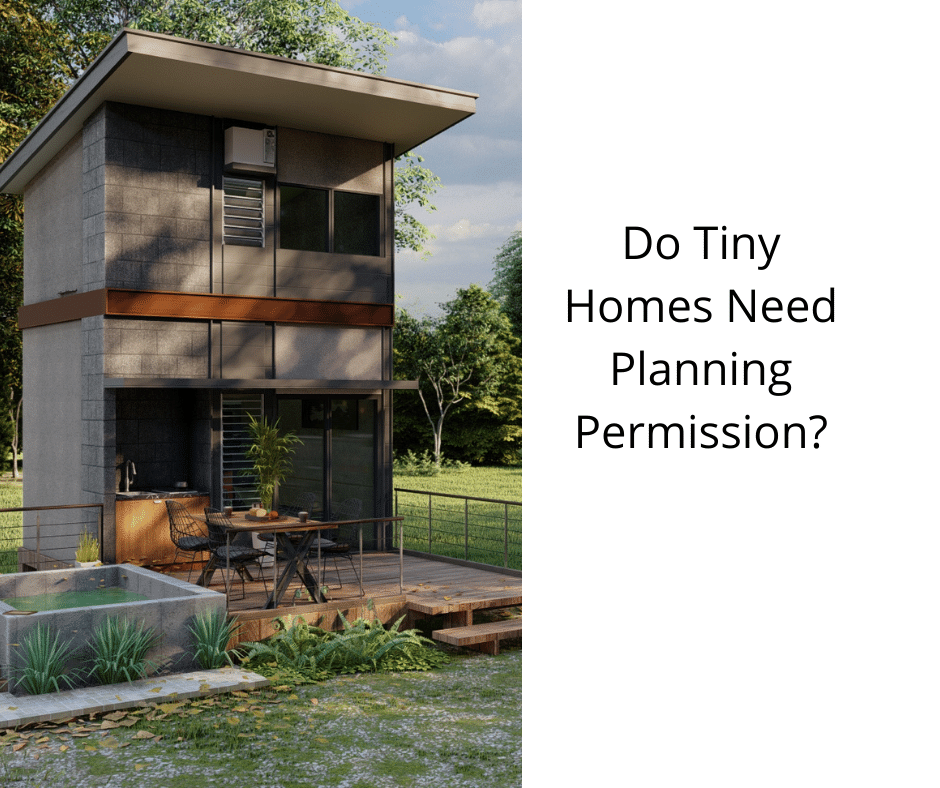
 Tiny House Resources (e.g., legalities, cost, insurance, FAQs)4 months ago
Tiny House Resources (e.g., legalities, cost, insurance, FAQs)4 months agoDo Tiny Homes Need Planning Permission?
-

 Beginners Guides3 months ago
Beginners Guides3 months agoFrom The Show Tiny House Nation How Many Keep Their Tiny House?
-
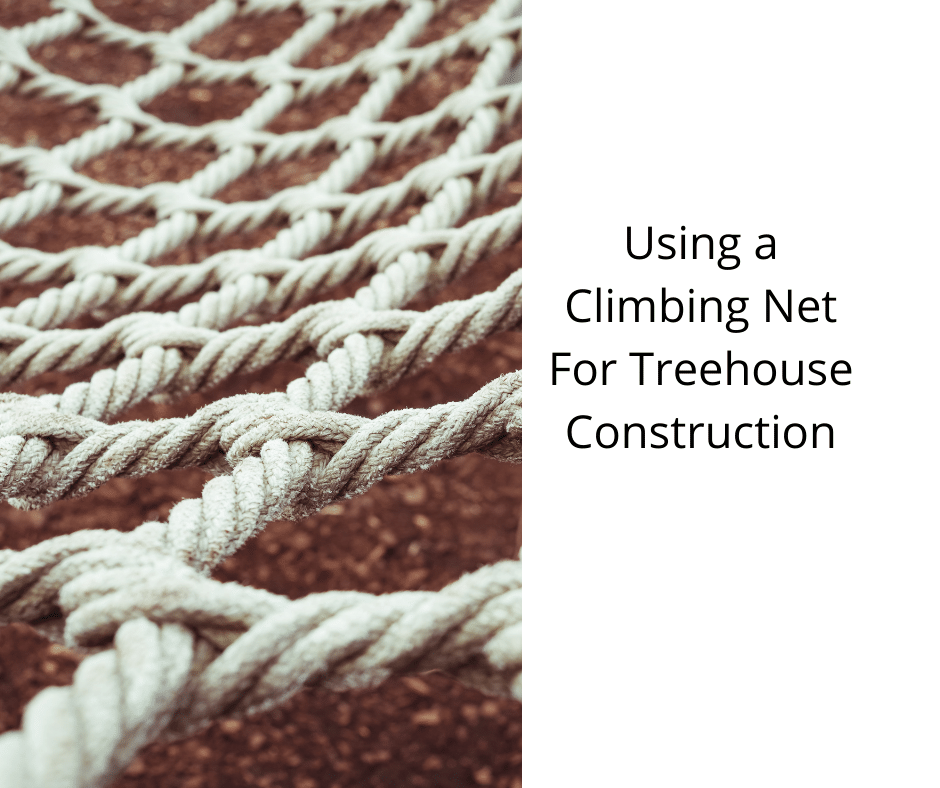
 Beginners Guides4 months ago
Beginners Guides4 months agoUsing a Climbing Net For Treehouse Construction
-
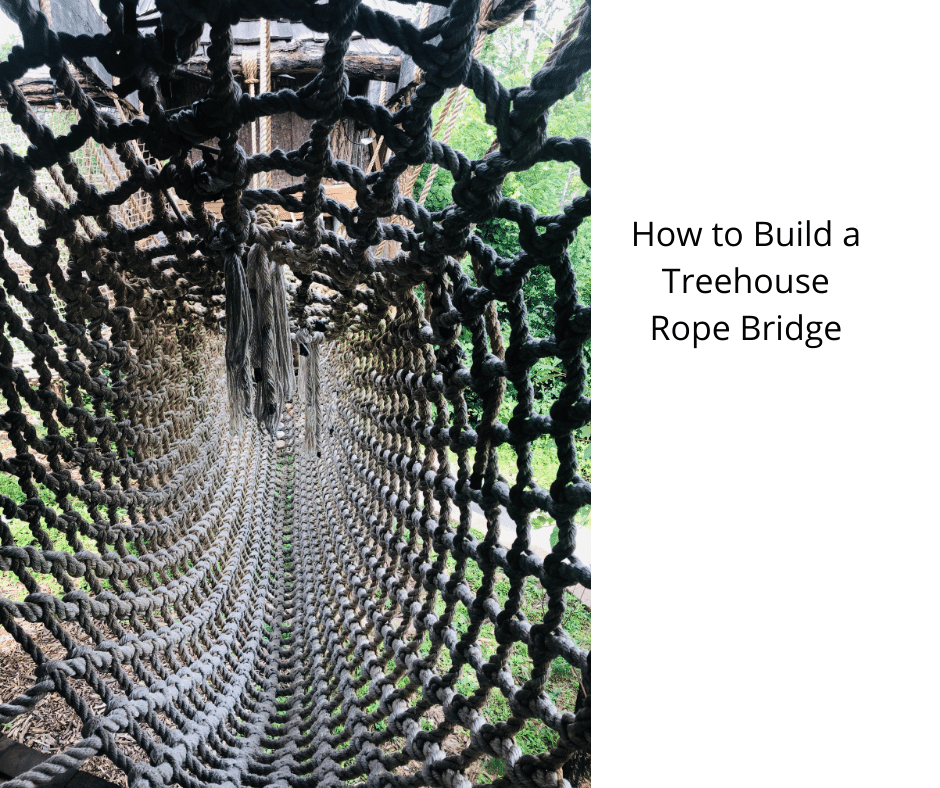
 Beginners Guides4 months ago
Beginners Guides4 months agoHow to Build a Treehouse Rope Bridge
-
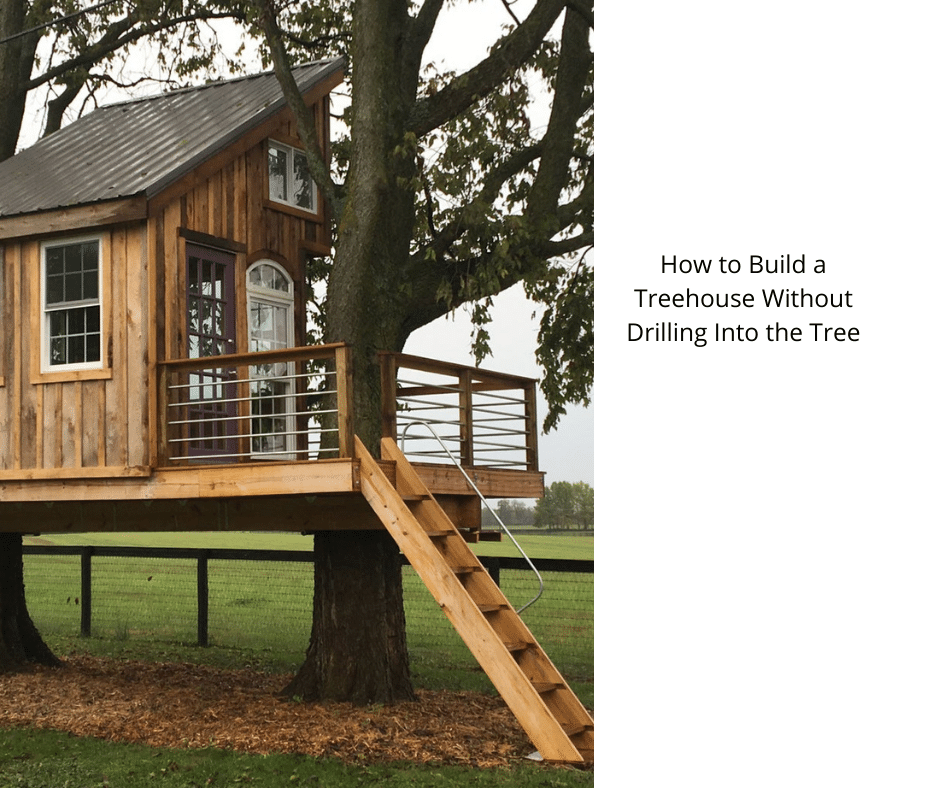
 Beginners Guides4 months ago
Beginners Guides4 months agoHow to Build a Treehouse Without Drilling Into the Tree




